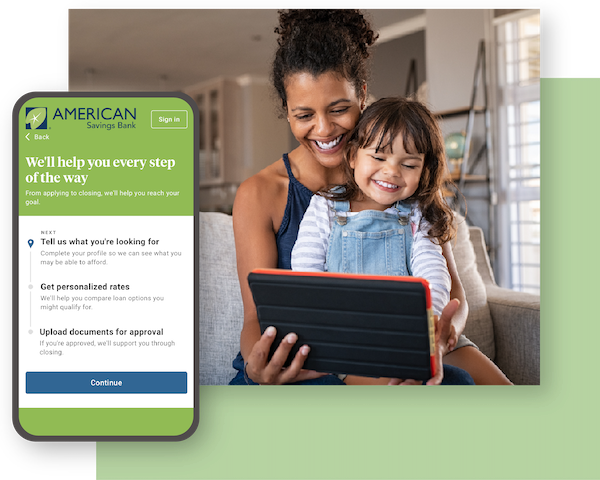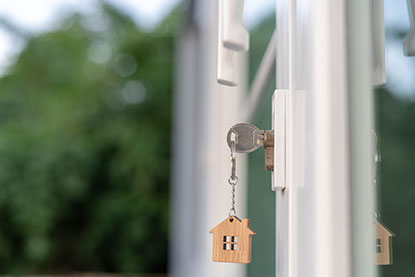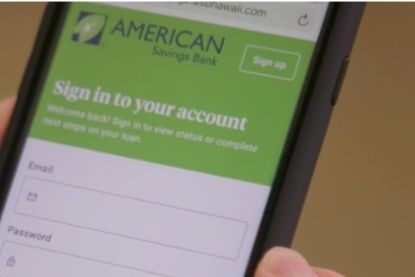< Back Helpful Articles
Getting Started with Clean Energy Financing
By
ASB
August 30, 2021 |
4 MIN
read
Personal
More and more homeowners in Hawaii are choosing to go green when powering their homes. Installing solar or other clean energy systems to power your home can help reduce your environmental impact while saving money on utility costs however, this can be a large upfront expense. At American Savings Bank, we want to make it easier for Hawaii homeowners to invest in clean energy technologies for their homes. We’ve partnered with contractors across the islands to give Hawaii residents great financing options for clean energy systems. Read on to learn more about our clean energy loans and financing incentives to help you make your dream of residential solar power a reality.

HOW DOES THE CLEAN ENERGY LOAN WORK?
ASB’s clean energy loan is designed to make it more affordable for homeowners in Hawaii to add solar panels and other green systems to their property. To receive the loan, install a covered clean energy system on your home or other residential property. You’ll also need to work with one of our partnered contractors to buy and install your system.
If approved, your clean energy loan can help pay for both the purchase price and installation costs of your new energy system. Fifty percent of the loan proceeds will be sent to your contractor so they can begin the project. The remaining 50 percent is deposited into your ASB bank account to be used to pay your contractor, according to your contract terms.
WHAT SYSTEMS ARE COVERED BY CLEAN ENERGY LOANS?
Clean energy system financing is available for a variety of clean energy systems. Qualifying green energy residential systems include:
Photovoltaic (PV) System: PV systems are solar panels you add to your roof or other parts of your property. The PV cells in the panels absorb sunlight and convert it directly to electrical energy in a process known as the photovoltaic effect.
Solar Water Heater System: A solar water heater, or thermal solar water heater, uses energy from the sun to heat the water in your home. Energy from the sun is absorbed as heat, which is transferred to a holding tank where the water is heated.
Solar PV Water Heating System: A solar PV water heating system uses PV panels to actively convert sunlight into electrical energy to heat the water in your home. The electrical energy from the PV panels is sent to a power diverter that heats your water tank.
Solar Air-Conditioning (A/C) System: Solar A/C units use PV panels or thermal panels to absorb energy from the sun and use it to power an air conditioning unit. PV panel systems work similarly to a regular A/C unit by supplying it with the electricity it needs directly from the sun. Thermal solar A/C systems use heat from the sun to warm up water and pass it through an evaporative system.
- Battery Back-Up or Storage System: This includes batteries and storage systems that can be used to store the energy from your PV or solar panels.

FEATURES OF A CLEAN ENERGY LOAN FROM AMERICAN SAVINGS BANK
Our goal is to make purchasing and installing a clean energy system on your home in Hawaii easy. Clean energy financing from ASB offers straightforward terms, repayment schedules, and extra benefits to make accessing and managing your account simple.
FEATURES OF OUR CLEAN ENERGY LOANS INCLUDE:
Direct Loan Disbursement: Once you’re approved for your loan, we’ll send your contractor 50 percent of the loan proceeds. This removes the waiting time and ensures that your contractor can immediately begin the project. We’ll send the remaining loan balance to your ASB account, where you can use it to pay the remaining contractor fees based on your agreed-upon contract.
Online Banking Access: Use Online Banking to see your balance, make a payment and manage your loan from anywhere. You can log in on a desktop, laptop or smartphone using the ASB Hawaii Mobile App.
Multiple Payment Options: You can choose to set up automatic payments from your ASB checking or savings account so that you don’t have to manage monthly loan payments. You can also pay online through Online Banking.
- No Prepayment Fees: Want to pay off your clean energy loan early or cut down on your principal amount right after being approved? There are no prepayment penalties, meaning you can pay off as much of your loan at one time without incurring a fee. For example, you might want to use proceeds from a clean energy tax credit to pay off part of your loan.
GET YOUR CLEAN ENERGY SYSTEM TODAY WITH GREEN ENERGY FINANCING
As Hawaii residents, we all have a responsibility to protect our island through efficient energy consumption. Paying less on your energy bill is an added perk! Install a clean energy system using our clean energy loan and do your part today. Learn more about financing your solar PV or thermal energy systems by making an appointment or applying online.
APPLY NOW
Nothing contained in this material is intended to constitute legal, tax, securities or investment advice, nor an opinion that it is appropriate for readers. The information that is contained in this material is general nature. Readers should seek professional advice for their respective situations.








































